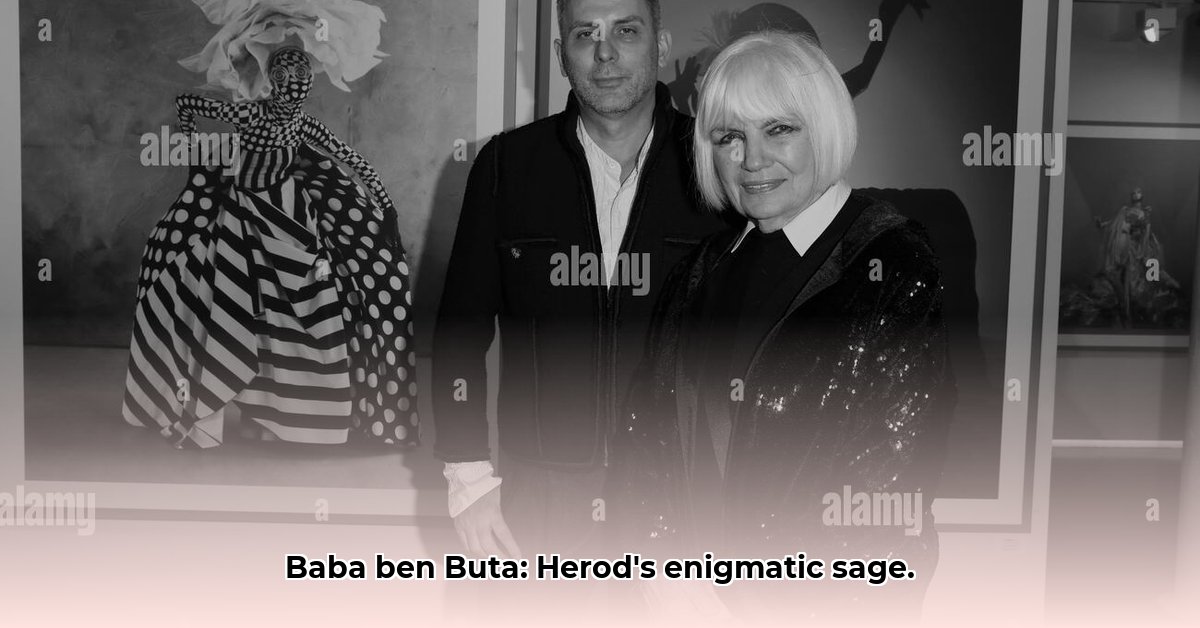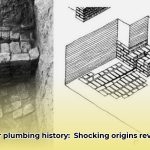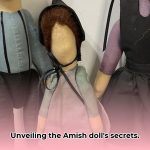Navigating Power and Piety in Roman Judea
Baba ben Buta emerges from the tumultuous first century BCE, a period in Judean history marked by Roman dominance and the reign of Herod the Great. His story, a blend of historical accounts and Talmudic tradition, offers a glimpse into the precarious lives of Jewish scholars under Roman rule. Was he connected to the rebels who defied Herod? Did he truly advise the king on rebuilding the Temple? This article delves into the life and legacy of Baba ben Buta, exploring the intersection of history, legend, and the enduring questions his story raises.
A Scholar in Turbulent Times
Baba ben Buta lived during a period of immense political and religious upheaval. First-century Judea, under the iron fist of Herod the Great, presented a challenging environment for Jewish leaders. Herod, a complex figure known for both grand building projects and ruthless suppression of dissent, cast a long shadow over the lives of his subjects. Within this context, Baba ben Buta thrived as a respected scholar, navigating the treacherous landscape of power and piety.
The Talmud, a collection of Jewish oral law and tradition, suggests a complex relationship between Baba ben Buta and Herod. It portrays Baba ben Buta as an advisor to Herod during the reconstruction of the Second Temple, a pivotal moment in Jewish history. This interaction suggests a delicate balancing act, with a scholar daring to engage with the ruling power, potentially at great personal risk. One Talmudic account even depicts Herod, disguised, seeking Baba ben Buta’s counsel. Even though Baba ben Buta was likely blind, he is said to have perceived Herod’s deception, offering carefully worded critiques of the king’s actions. This narrative may symbolize the precarious position of Jewish leaders who sought to preserve their heritage under Roman authority.
Between History and Legend: Unraveling the Narrative
Distinguishing historical fact from later embellishment is crucial when examining Baba ben Buta’s life. Josephus, the primary historical source for this period, makes no mention of Baba ben Buta. The majority of information about him comes from the Talmud, compiled centuries later. While the Talmud offers valuable insights, it’s important to recognize its nature as a compilation of evolving traditions and interpretations. It is likely that the stories surrounding Baba ben Buta incorporate both historical memory and later elaborations.
The Talmudic tradition includes a dramatic account of Herod blinding Baba ben Buta, perhaps in a fit of rage or suspicion. Whether historically accurate or not, this story highlights the dangers faced by Jewish leaders under Roman rule. The same tradition recounts Herod’s subsequent remorse and disguised attempt to trick the now-blind Baba ben Buta into cursing himself. The sage, however, reportedly saw through the ruse, demonstrating resilience and wisdom in the face of adversity.
Adding another layer of complexity is the potential connection between Baba ben Buta and the “Sons of Baba,” mentioned by Josephus. These noblemen from Jerusalem were executed by Herod. The shared name raises the possibility of a familial link, but concrete evidence remains elusive. Did later storytellers intentionally obscure the connection, or is it merely a coincidence? This unresolved question adds to the enigma surrounding Baba ben Buta.
A Legal Mind and a Pious Heart
Beyond his interactions with Herod, Baba ben Buta was renowned for his legal acumen and piety. He studied under Shammai, known for his strict interpretations of Jewish law, yet occasionally sided with the more lenient Hillel. This suggests an independent mind capable of nuanced legal reasoning. His decisions, such as those concerning sacrifices on Jewish festivals, had lasting impacts on religious practice.
Baba ben Buta’s piety is evident in accounts of his daily guilt-offerings, a testament to his commitment to atonement. Yet, his devotion wasn’t rigid adherence to rules. The Talmud recounts his willingness to overlook a personal insult to maintain family harmony, demonstrating a prioritization of communal peace over personal grievances.
Baba ben Buta’s Legacy: Enduring Questions
Baba ben Buta’s story embodies the complexities of Jewish life under Roman rule. It raises enduring questions about navigating faith and power, tradition and change. Did he offer counsel to Herod out of genuine religious concern, a survival tactic, or a form of subtle resistance? These questions remain open to interpretation, highlighting the challenges of reconstructing the past.
His legacy continues to inspire reflection on resilience, wisdom, and the difficult choices individuals face under oppression. Baba ben Buta’s story reminds us that history is rarely straightforward. It encourages us to grapple with uncertainties, to embrace the complexities of human motivation, and to appreciate the enduring power of the human spirit in the face of adversity.
Further research and ongoing scholarly discussion may shed more light on the life and influence of Baba ben Buta. For now, he remains a compelling figure, shrouded in mystery, who invites us to explore the intricate tapestry of Jewish life under Roman rule.
Further Exploration
Here are some resources for further exploration of Baba ben Buta and the historical context of his time:
- Josephus, Antiquities of the Jews: Provides crucial historical background on Herod the Great and the political climate of Judea.
- The Babylonian Talmud: Contains the primary Talmudic passages relating to Baba ben Buta. Scholarly commentaries on these passages can be particularly helpful.
- Works by Shaye J.D. Cohen: Offers insightful analysis of ancient Judaism and the interplay of history and legend. Look for his publications on Jewish life under Roman rule.
- Scholarly articles and books on the Second Temple period: A wealth of research exists on this era, providing valuable context for understanding Baba ben Buta’s life and times.
This expanded and reorganized article aims to provide a comprehensive and engaging exploration of Baba ben Buta’s life, while acknowledging the historical ambiguities and ongoing scholarly debate surrounding his story. It incorporates a more accessible academic tone, draws upon relevant historical and religious sources, and emphasizes the complexities and nuances of interpreting ancient texts.
- Hydroelectric Power Basics How Water Is Used For Electricity - February 26, 2026
- Portable Water Generators Power Off-Grid Homes and Adventures - February 25, 2026
- Portable Hydroelectric Power Generators Light Up Off-Grid Living - February 24, 2026
















